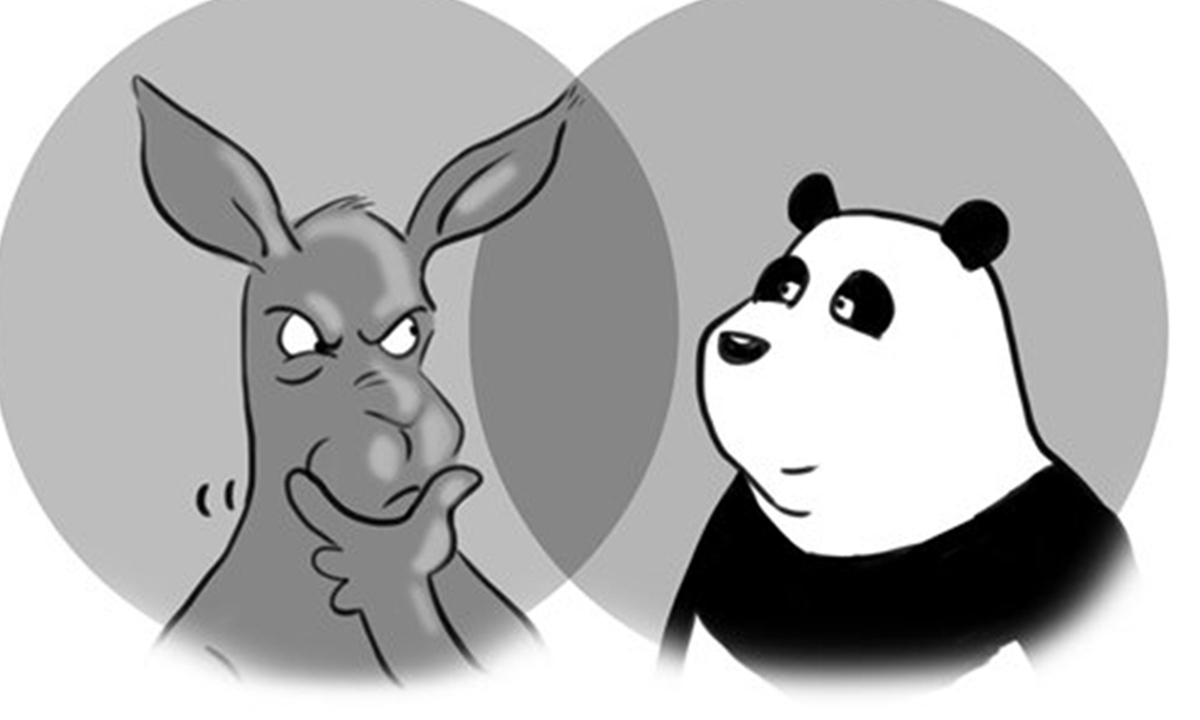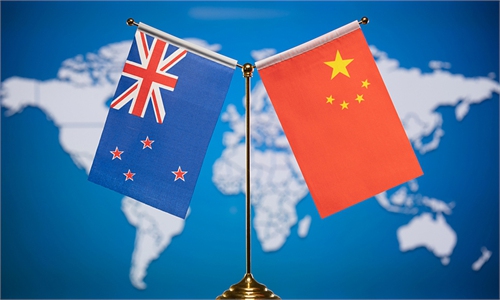
China Australia Illustration: Liu Rui/GT
Australian politicians have voiced multiple times recently trying to fix frayed ties with China. On Monday, Prime Minister Scott Morrison stated that Australia remained committed to "engaging with China." In late January, Australian Trade Minister Dan Tehan said that he had written a "detailed letter setting out a strong willingness to engage with China" to his Chinese counterpart.But exactly how? This question remains unanswered.
Canberra tossed out a seemingly simple suggestion to start afresh - reopening dialogue. The idea has been raised by Morrison since December. In January, he said "we are always open" to talks with China if there are no preconditions.
Yet Australia is far from being "always open." Yu Lei, chief research fellow at the research center for Pacific island countries of Liaocheng University in East China's Shandong Province, told Global Times on Tuesday that Australia's so-called no-conditions meeting means none of Australia's hostile moves against China, including restricting investment from China, banning Huawei, and demonizing the Middle Kingdom, should become the stumbling blocks of future talks between the two countries. In other words, Australia hopes to suppress, antagonize and talk with China at the same time.
Australia is sending no sincere goodwill to repair ties. It takes actions, rather than words or letters to turn the table on the plunging relationship. So when Tehan stressed he wrote a letter but received no reply, he was not sending a signal to China, but to Australians, telling them Canberra tried, and that it is Beijing who showed a cold shoulder.
The remarks are well choreographed with other Australian politicians, such as Treasurer Josh Frydenberg, who has been hyping the narrative that China is escalating "economic coercion" against Australia. The series of Australian politicians' rhetoric is aimed at portraying a fiction - China is bullying Australia - in an attempt to win support and sympathy at home and abroad.
Morrison acknowledged on Monday that ties with China have evidently changed, suggesting both sides "adapt to these new realities." A simple translation of the sentence would be - Australia's antagonistic and confrontational stance on China has become a new normal and China better accept it. Is that Canberra's plan to fix ties?
The reason for Australia pretending to extend an olive branch couldn't be more obvious - the US has a new president. Although observers generally think Washington will keep its hard-line approach toward Beijing for the moment, it is also believed the US won't behave as reckless as it did during Donald Trump's presidency. Canberra, one of the most proactive anti-China pioneers on Trump's chariot, is now anxious, fearing to be trapped in an awkward situation if Joe Biden adjusts the US' China policy. It is showing goodwill gestures to China to prepare a way out of the possible predicament.
If Australia wants a genuine reconciliation, it should stop interfering in China's domestic affairs, or lecturing China on Hong Kong or human rights issues. If Canberra sincerely wants dialogue, it would immediately halt smearing China, be it over the inconclusive COVID-19 origin, or "Chinese spy" theory. It should also stop targeting China on every possible regional issue, such as those in the South China Sea and Indo-Pacific region; quit fabricating groundless rumors about Huawei, and allow Australian telecoms to choose their partners; and remove discriminatory restrictions on Chinese investment.
It is Australia that cut the line of communication with China. If it wants to resume talks, it should at least try harder to proactively connect the wires.



